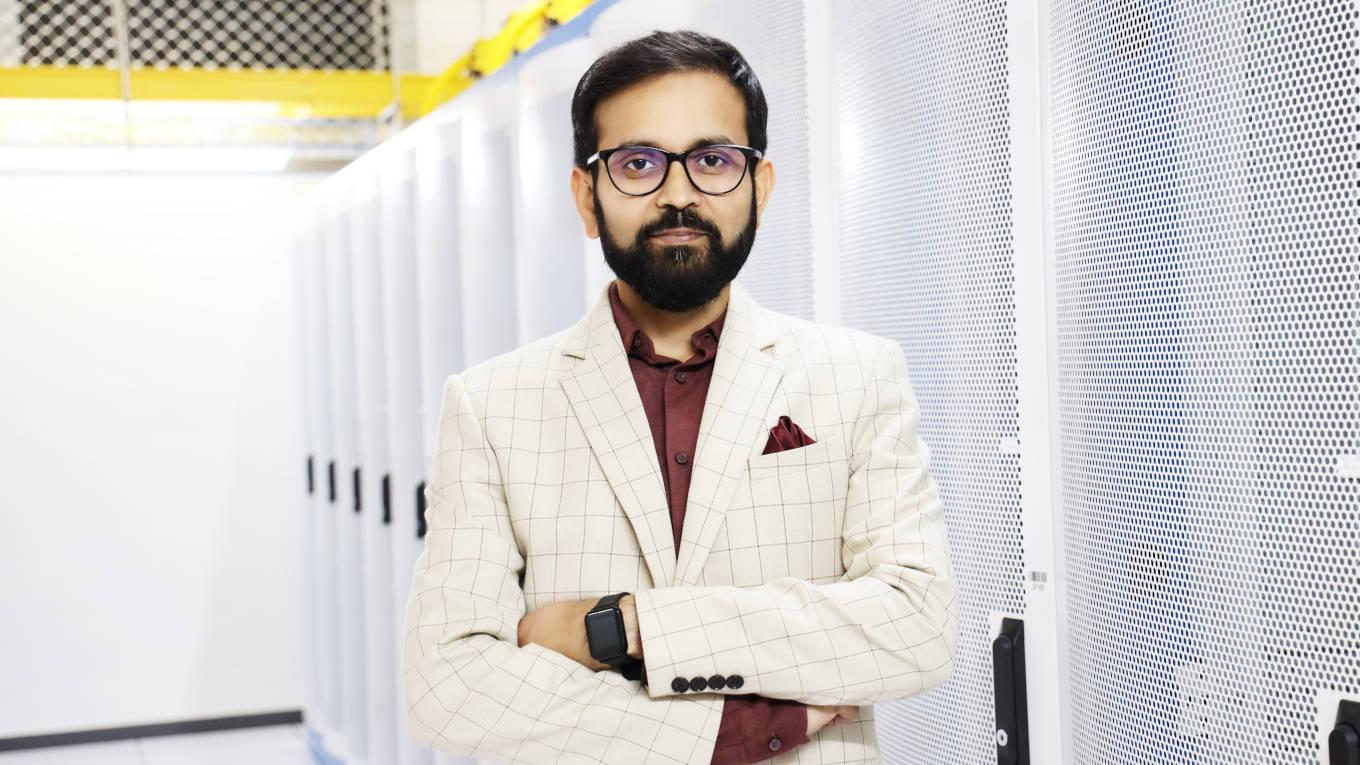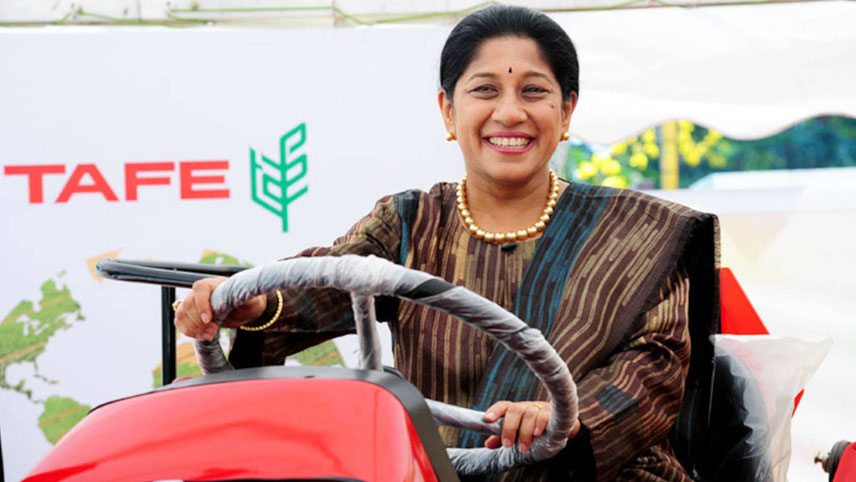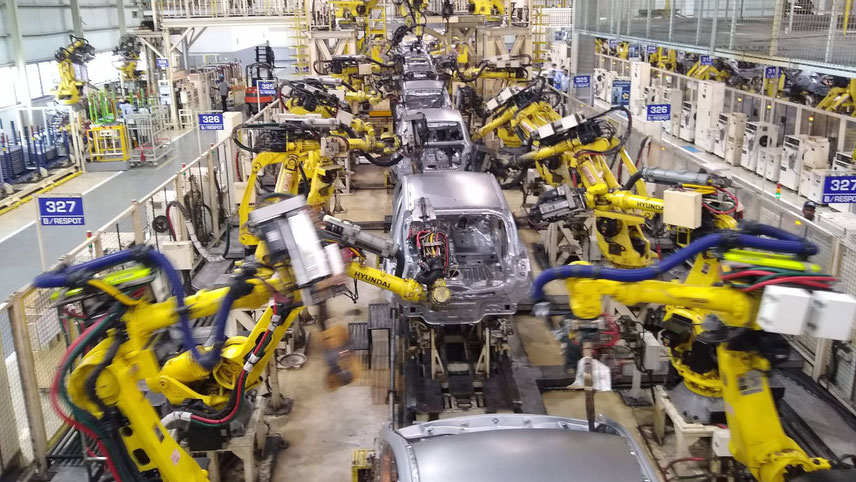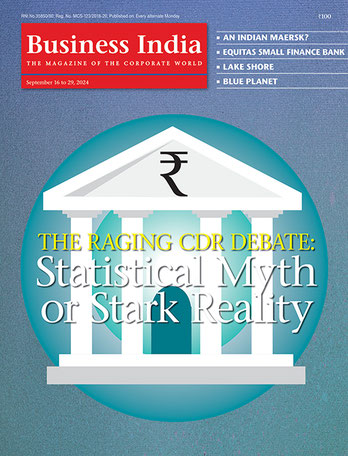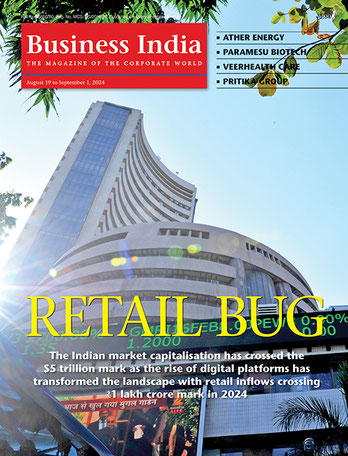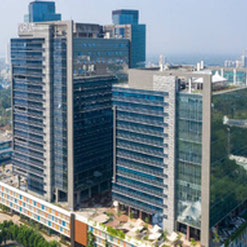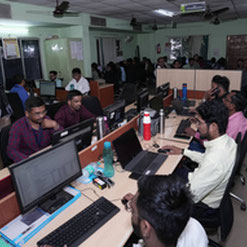-
Though ESDS is widely recognised as a cloud services provider, we actively promote ourselves as a comprehensive ‘One-Stop Shop’
ESDS now holds the distinction of being the first company in India to introduce cloud computing with the launch of its proprietary eNlight Cloud platform, revolutionising the IT landscape. The company was among the earliest providers in India to offer vertical scaling capabilities to its customers, empowering them with the flexibility to scale their resources vertically as per their evolving needs.
In 2011, ESDS proudly introduced one of the first true ‘Make in India’ cloud solutions, setting a precedent for indigenous innovation in a nascent cloud market dominated by virtualisation. Through relentless R&D efforts, the company has developed a vertically auto-scalable cloud solution and has been granted patents in the US and the UK, underscoring its commitment to technological excellence and innovation.
The company’s services and products impact the lives of over 600 million people, hosting data from more than 1,300 enterprise, government, and BFSI clients on the ESDS Cloud. Around 10 million smart metres are hosted on its cloud and over Rs2,46,000 crore worth of loans have been disbursed through the Mudra Yojana scheme, hosted on ESDS Cloud. While the data of 14 major smart cities are hosted on the company’s eNlight Cloud, over 28,00,000 million security events are analysed per day. Additionally, more than 26,500 devices have been onboarded for SOC.
The company has four data centres – one each in Mohali, Navi Mumbai, Bengaluru, and Nashik. These data centres have been granted ‘Tier III’ status by QSA International Ltd. The company offers a range of cloud services including community cloud, private cloud, public cloud, hybrid cloud, and colocation services under its Infrastructure as a Service (IaaS) offering.
Industry specific solutions
As part of its managed services, ESDS offers comprehensive support and management for maintaining IT infrastructure, while its IT security services encompass advanced measures that ensure data protection and regulatory compliance for clients. The SaaS products and offerings include industry-specific software solutions for streamlined operations and tailored applications meeting unique business needs. ESDS has indigenously developed several products such as eNlight 3600, eNlightWAF, Low Code Magic, VTMScan, and iPAS, which complement the data centre and cloud business.
eNlight Cloud is the company’s patented vertically auto-scalable cloud technology platform. This innovative and intelligent cloud platform provides a computing environment with auto-scalability for cloud resource provisioning and a new billing mechanism that allows enterprises to save a significant amount of money. The platform enables users to save compute costs through its intelligent Vertical Auto-Scaling Technology and ‘Pay-Per-Consumption’ billing model.
Famrut is ESDS’s Agritech farming solution. The platform is an innovative ecosystem that delivers future-ready farming solutions and connects farmers with all relevant stakeholders in the entire agricultural sector. It is a game-changing, digital, and customised solution tailored exclusively for farmers producer organisations, farmers producer companies, PSUs, and farmer communities.
The platform is the digital bridge that brings together farmers, fostering seamless transactions and promoting growth. Famrut aims to help over 140 million farmers in India maximise their income through smart agricultural systems such as plant maintenance, crop advisory, soil testing, drone services, crop practices, and by connecting them with various touchpoints in the farming ecosystem.
-
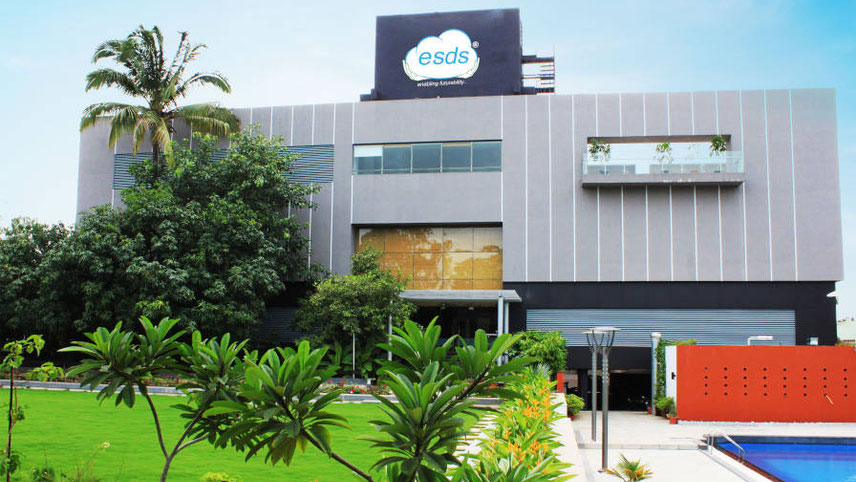
ESDS aims to touch the lives of one billion people by 2027
“At Famrut, our focus is completely on digitally overhauling the Indian farming sector. Bringing the farmer to the forefront of digitally transforming Indian farming, crafting an ecosystem that’s all about providing state-of-the-art solutions and seamless connections to every essential player in the agricultural world are our objectives. Our purpose is to empower farmers, ensuring their success and fostering a sustainable future for Indian agriculture,” says Somani.
Similarly, iPAS is a complete office automation software to monitor and control work and processes in offices. The entire solution includes letter management, document journey management, admin approval, fund management, and work monitoring along with a mobile suite. Currently, iPAS is implemented and running successfully in the district planning offices of Nashik and the suburbs of Mumbai and is being rolled out across 36 districts in Maharashtra. iPAS benefited 1,54,64,149 citizens by monitoring 9,392 works last year, while inwardly averaging 1,000 public works monthly.
The mission of another SaaS offering, Low Code Magic, begins with a singular goal: to transform and revolutionise the way applications are developed. Users can create visually, ensuring an accessible and user-friendly process, and deliver fast, flawless results. Integration using APIs opens the door to endless possibilities and the ability to distribute creations everywhere. One can prepare to experience the transformative power of agile form development, robust workflow management, and cutting-edge technology. This platform holds something extraordinary, poised to elevate the development journey.
With all these innovative products and services in place, ESDS has set a vision and mission to touch the lives of one billion people by 2027. ESDS aims to connect more than a billion smart devices with its business solutions, enabling a digital future. The company looks to connect intelligent devices to its auto-scalable eNlight Cloud.
“The ‘Make in India’ advanced technology has proven to be instrumental in boosting IT sectors in India. Currently, India is the fourth-largest destination in creating unicorns. ESDS aims at delivering tech-advanced services to businesses and getting recognised as a leading enterprise from India,” says Sandipan Bhattacharjee, Head of Marketing, ESDS.
As ESDS embarks on a transformative journey, it aims to establish itself as a leading Indian hyperscaler with a global presence. “We want to address the current gaps existing in the market. There are significant concerns about how global hyperscalers manage data encryption and security. Many customers face the risk of data breaches, loss, or being denied access to their own data. ESDS looks to address these critical gaps, ensuring robust data security and sovereignty for Indian customers, which is crucial in preventing potential future crises,” states Somani.
Over the next 2 years, ESDS plans to launch a variety of innovative cloud services to redefine industry standards. To support its advanced cloud services, the company is set to expand its data centres. “The expansion isn’t limited to cloud services. ESDS is also venturing into the cybersecurity domain. Together, these three areas – cloud services, data centres, and cybersecurity – form the foundational pillars that will propel ESDS into becoming a multibillion-dollar organisation,” explains Somani.
Green initiatives
While expanding its data centres, ESDS has set ambitious targets. In the next 12 months or so, the company, backed by the Global Environment Fund, aims to shift all its offices and data centres to 100 per cent renewable energy. It is also working on liquid cooling. Additionally, the company has launched a Green Connect initiative by planting one billion trees.
-
ESDS looks to address the critical gaps, ensuring robust data security and sovereignty for Indian customers, which is crucial in preventing potential future crises
ESDS is a creator of several eco-friendly technologies. Its unique next-generation cloud model saves up to 70 per cent of hardware resources of IT systems, resulting in substantial power savings and environmental conservation by data centres and ESDS customers. Data centres represent one of the fastest-growing areas of energy consumption globally, and energy efficiency improvements play an enormous role in taming the growth rate in the industry’s energy consumption.
To encourage ESDS’s green initiatives, the Global Environment Fund (GEF) invested in it in 2018. Talking about the partnership, Raj Pai, Managing Partner of GEF Capital Partners, said: “We have known ESDS for some time now and believe that in an era of ever-increasing computing demand, an efficient cloud solution is the perfect way for enterprises to optimise their IT resources and lower their energy footprint. We have been impressed with the phenomenal growth that the company has demonstrated, as well as its patented technology, which allows vertical and horizontal scaling, demonstrating a high degree of benefit for computing resource efficiency. We are excited to partner with ESDS to enable them to become a key catalyst in the global cloud solutions space.”
“Both companies can reduce energy consumption and lighten the environmental footprint of enterprises and agencies,” said Jeffrey Leonard, CEO of GEF. “India has over 880 million internet users, almost twice that of the USA and about 12 times higher than that of the UK. However, data centre space per one million internet users in India stands significantly lower compared to established markets.
As data localisation becomes the norm, India’s data centre market is likely to witness accelerated growth, opening enormous opportunities for developers and operators in the space in the next 2-3 years. At the same time, abundant availability of space, established global connectivity through submarine cables, comparatively lower land and power costs, and burgeoning demand will further lead data centre operators to explore India, resulting in fast-paced growth of the sector,” says a Colliers’ report.
With all these developments in place, ESDS is well poised to commence its next growth phase. The company’s cloud and data centre-related products are well recognised in the market. To differentiate itself from other providers, this Nashik-based company has consciously focused on innovations and R&D capabilities, evidenced by its wide range of clients across government and private enterprises, as well as its ability to attract the attention of the Global Environment Fund. The next few years will be crucial for the company as it tries to expand its business in the fiercely competitive data centre and cloud services market.
